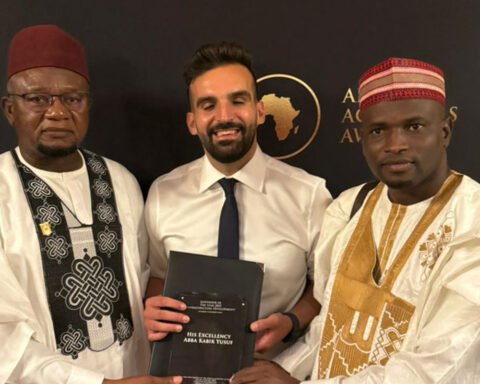The alarming rate of out-of-school children worldwide, particularly in developing nations, poses a significant threat to their prospects, Chief Executive Officer and Founder of Caleb Danladi Foundation, Capt. Caleb Danladi Bako, warned.
With millions of children deprived of formal education due to poverty, conflict and inadequate infrastructure, Bako emphasized the urgent need to harness the power of Science, Technology, Engineering, and Mathematics (STEM) innovation to create inclusive and transformative learning opportunities.
“Traditional classroom models have failed to reach marginalized children, but technology-driven education, digital learning platforms, and interactive STEM programs can provide flexible and engaging solutions,” Bako noted.
“Traditional classroom models, while effective in structured environments, have failed to reach marginalized children who live in remote areas, conflict zones, or impoverished communities.
“This is where innovation through STEM can play a transformative role by offering flexible, scalable, and engaging learning solutions.
“One of the most promising approaches to addressing this crisis is the use of technology-driven education. Digital learning platforms, mobile applications, and virtual classrooms provide opportunities for children to acquire foundational knowledge even in the absence of physical schools.
“Low-cost tablets, solar-powered learning centers, and mobile education buses can bring lessons to children in underserved regions, allowing them to learn at their own pace.
“Interactive STEM programmes that incorporate gamification and hands-on experiments can also make learning more engaging, ensuring that children develop problem-solving skills and creativity from an early age.
“Innovation in STEM education also opens the door to alternative pathways for skill acquisition. Many out-of-school children are forced into informal labour at a young age, limiting their ability to pursue conventional education.
“By integrating STEM-based vocational training into community programs, children can acquire marketable skills in fields such as renewable energy, digital technology, and engineering.
“These skills not only prepare them for employment but also empower them to become entrepreneurs and innovators in their communities.
“A young girl who learns to build solar panels or repair electronic devices, for instance, gains the ability to contribute to her local economy while securing a sustainable livelihood.”
Bako stressed that partnerships among governments, non-governmental organizations and the private sector are crucial in scaling up these solutions, adding that policymakers must invest in alternative learning models that leverage STEM.



























